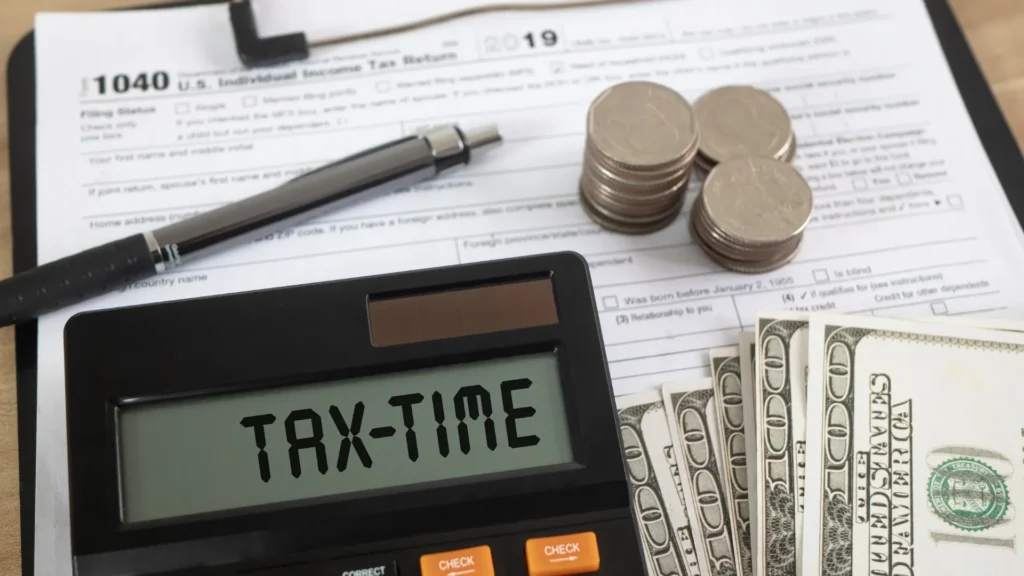Florida is known for being tax-friendly because it has no state individual income tax. Having said that, Floridians are still subject to state and federal taxes that must be paid as part of being a law-abiding citizen. So, what are they, and how do you pay Florida taxes owed? Let’s get right into it.
Common Types of Florida Taxes You Might Owe
If you are a resident of Florida, you may have to pay the following taxes:
Sales and Use Tax: A sales tax is added to the price of taxable goods and services. When sales tax is not paid during the purchase, a use tax is levied on using or consuming taxable goods and services.
Florida has a state sales tax of 6%, with the following exceptions: retail sales of new mobile homes (3%), receipts from amusement machines (4%), rental or lease of commercial real estate (2%), and electricity (6.95%).
Property Taxes: The state does not impose a property tax; local counties and municipalities administer property taxes based on real estate value.
Tangible Personal Property Tax: A TTP tax, or tangible personal property tax, refers to goods and property other than real estate that an owner can physically possess and have intrinsic value, such as inventories and household items. The tax applies to anyone who owns a business (proprietorship, partnership, or corporation), self-employed individuals, or rental property.
The rates are based on local mileage, which varies by county and municipality.
Florida Corporate Income Tax: This applies to corporations, and Florida’s corporate income tax is set at 5.5%.
Tourist Development Taxes: The ‘Bed Tax’ applies to tourism-related businesses such as rentals and accommodations that rent or lease their properties for six months or less. The tax rates vary by county. For example, Sarasota County’s rate is 6%.
Steps to Pay Florida Taxes Owed

Step #1: Understand How Much You Owe
The first step in paying Florida taxes owed is determining which taxes apply to you and calculating the amount owed. You can check your tax bill with the Florida Department of Revenue (DOR) or a county tax collector. Once the amount has been confirmed, proceed to the second step of reviewing the available payment methods.
Step #2: Review Payment Methods Available
Florida taxpayers have several options for paying their taxes. The first option is to pay online through the Florida Department of Revenue’s website. Note that some counties may only offer an online payment system. Therefore, check with your local counties for more information.
The second option is to pay via mail. Ensure you have the correct form and enter the correct information, such as the tax account number and address on your tax bill.
If you prefer to pay your taxes in person, you can do so at the Florida Department of Revenue or county tax collector offices. Contact them to confirm which types of payment are accepted.
Step #3: Set Up a Payment Plan if Necessary
Consider a payment plan if you cannot pay off your tax debt in full. A payment plan allows you to pay your tax debts periodically, which can help you manage your debts and finances. It is critical to understand that you should not sit back and do nothing if you cannot pay your tax debts.
Consider the options provided, contact the IRS, or seek professional advice from a tax attorney. Ignoring to pay off your debt will result in increased scrutiny and complicated tax issues, such as enforcement actions and levies.

Step #4: Pay Using Electronic Funds Transfer (EFT) for Large Balances
The Florida Department of Revenue (DOR) encourages businesses and individuals with large tax bills to pay using Electronic Funds Transfer (EFT).
An EFT allows you to transfer funds directly from your bank account, which reduces processing time while ensuring secure and timely payments. This payment method is also recommended for those with recurring payments, such as installment agreements.
Step #5: Pay Through the Florida Taxpayer Services Portal
The Florida Department of Revenue website provides an online payment system that enables taxpayers to pay their taxes directly through the portal. First, visit the website and select “make a payment.”
Next, log in to your account and select the type of tax you need to pay. Then, choose a payment method and submit your request. The Florida Taxpayer Services Portal offers a secure and efficient payment method.
How Greenberg Law Group Can Help You With Florida Taxes
If you require professional tax assistance, please contact our team at Greenberg Law Group. We provide individual and business tax services, including tax relief and resolution, advice on avoiding future tax issues, tax filing and submission preparation, IRS negotiation, and other tax-related services.
Greenberg Law Group’s professional tax assistance will help you feel more confident and at ease when navigating and dealing with various tax issues and preventing future tax-related problems. Contact us today, and we’ll get to work right away.




